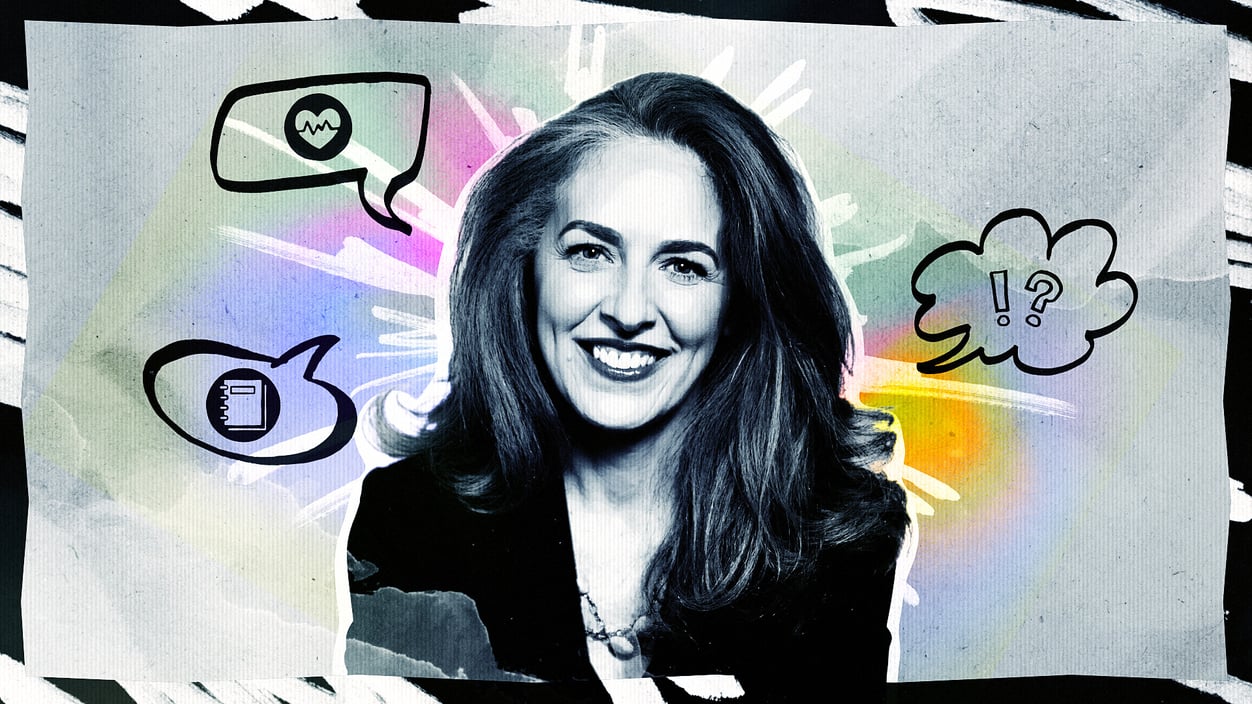closer look
A 'patient-led revolution' is key to improving care

Photo illustration: Casey Shenery for STAT
The throughline of Susannah Fox's career has always been studying how patients leverage technology and online communities to get answers about their health. The author of "Rebel Health: A Field Guide to the Patient-Led Revolution in Medical Care" told STAT's Isabella Cueto that the work patients do isn't just about technology; it's about humanity, whether they're mobilizing around accessing their own data from continuous glucose monitors or bringing about at-home sickle cell tests. Isa asked her more:
When did you realize for yourself that "rebel patients" were shaping health in unseen or unacknowledged ways?
It was not until talking with people who were undiagnosed or living with something so rare that unless they went online, they were not likely to ever meet another person who had this condition, much less find any kind of a path toward treatment. That's when I saw the importance of connecting online for support and information exchange, but also to solve problems.
Where do you fall on the spectrum from optimism to pessimism?
I do believe that technology, in general, brings good things to individuals and to health care.
Read the full interview.
health equity
After officer-involved killings of unarmed Black people, sleep suffers for Black people nearby
A new study in JAMA Internal Medicine looks at how officer-involved killings of unarmed Black people can impact a key component of health for broader Black communities. Researchers analyzed two large nationally representative surveys of nearly 2 million Americans who'd answered questions about how much sleep they got in a 24-hour span. When compared to a database mapping officer-involved killings of unarmed Black people, more Black people (46%) who lived nearby or in the same state as the killing reported short sleep compared to white respondents in proximity to the killing (33%).
"While we have focused, over the last decade, on the social impact of the high-profile police killings of George Floyd and multiple other unarmed Black individuals in the U.S.," an editor's note says, "the health effects of both fatal and nonfatal police violence on Black populations need to be documented as a critical first step to reduce these harms."
social determinants of health
Help with housing improves health, too
It stands to reason that if someone's housing is unstable, their health might also be teetering. A new study in Health Affairs looked at a hospital system's program that enlisted primary care providers to help prevent homelessness and improve health for more than 1,100 patients on Medicaid with more chronic conditions and higher emergency room use than the general population. By 2021, among participants who were unhoused, facing eviction, or living in unsafe housing conditions, people who received integrated support from the program's care team had 2.5 fewer primary care visits and 3.6 fewer outpatient visits per year, including for social work, behavioral health, psychiatry, and urgent care.
Patients also enjoyed better physical and mental health; many said they felt more connected to their health care clinic and clinical team. But there was no difference in emergency department or inpatient use or chronic disease control.


No comments